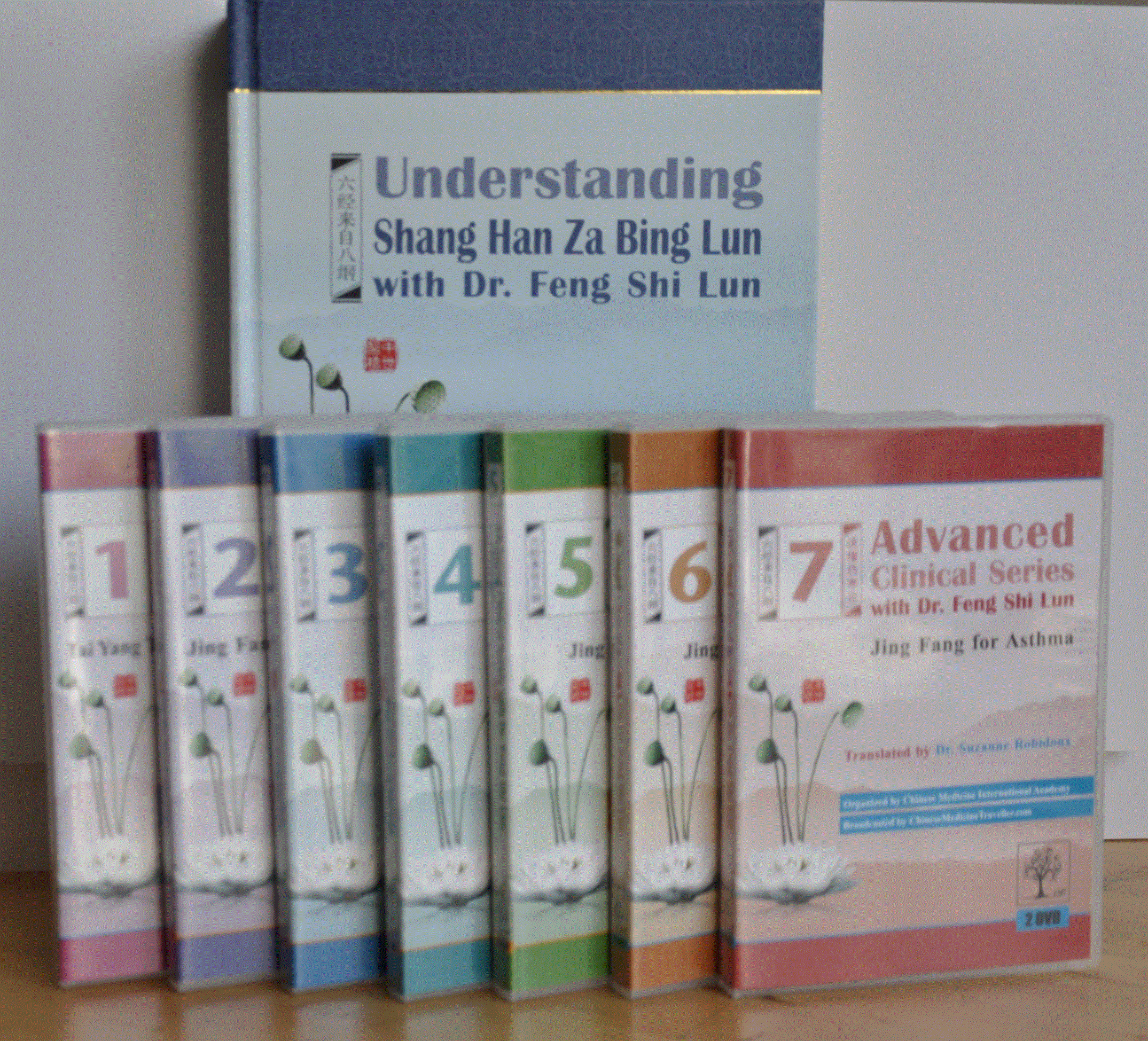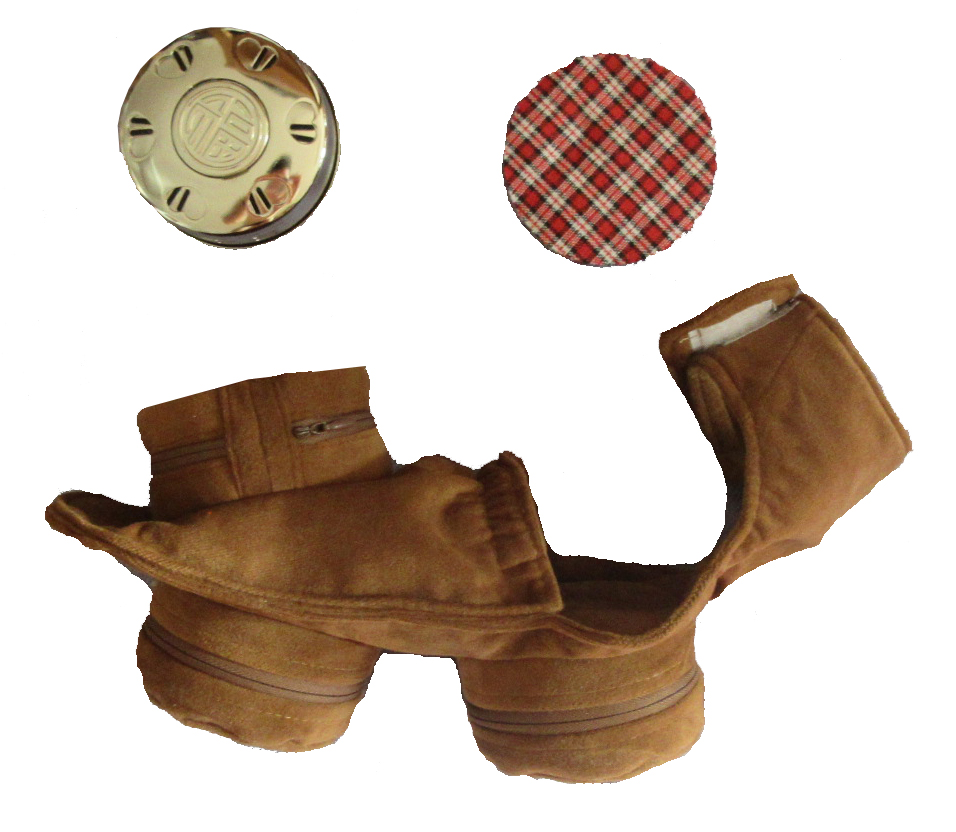
Chinese Medicine Traveller 
Bridging the World of Ancient Healing
- Classical Acupuncture
- Classical Moxibustion
- Classical Formula - Jing Fang
- Ba Gua Zhang Internal Arts
- Health Cultivation
Acupuncture Stabilizes Dementia

Research finds acupuncture effective for improving memory, cognition and walking for patients with dementia. First up, we take a look at acupuncture points that improve walking and movement for patients with vascular dementia. Neurologic exams often reveal gait disorders. The inability to walk properly may severely inhibit the lifestyle of patients with dementia while increasing the risk of falling. Researchers have identified several key acupuncture points that significantly improve the gait of dementia patients. In addition, acupuncture produced significantly superior patient outcomes over a control group receiving conventional pharmaceutical medications.
Gait disorders associated with dementia often involve circular rotations of the hip, foot drag, reduced knee movement, stooped posture, reduced arm swing, shuffling, small steps, a broad stance, unsteadiness, or difficulty initiating movement. Researchers have discovered that the application of Hua tuo jia ji (EX-B2) acupuncture points from L2 to L5 combined with scalp acupuncture at Bai hui (DU20) and Si shen cong produced a total effective rate of 90.5%. Use of the drug Almitrine (Duxil) had a total effectiveness rate of 61.9%. As a result, the researchers conclude, “The efficacy of treating vascular dementia gait disorder with electro-acupuncture (EA) on EX-B2 along lumbar vertebra combined with scalp acupuncture was superior to orally administered Duxil.”
Acupuncture Protocol
Hua tuo jia ji points were needled bilaterally from L2 to L5 along with DU20 and Si shen cong. Electro-acupuncture was connected bilaterally to the Hua tuo jia ji points. Treatments were administered once per day for 30 days. A significant achievement, the research data clearly shows that this protocol significantly and positively impacts the daily lives of patients with dementia.
Memory and Thinking
Acupuncture helps to reduce dysfunction of reasoning, memory and general cognition according to research by G. Shi, et al. Vascular dementia is caused by damage to the brain from impaired blood flow. Stroke or conditions leading to damaged blood vessels or poor circulation that cause deprivation of oxygen and nutrients to the brain plus hypertension, high cholesterol, smoking and heart disease are all risk factors. Traditional Chinese Medicine (TCM) differential diagnostics revealed that patients improving the most suffered from excess syndromes, particularly Liver Yang hyperactivity and phlegm obstruction of the orifices. Patients with deficiency syndromes, including Kidney Jing-essence deficiency, demonstrated the least improvements.
Luo, et al., discovered that acupuncture successfully increases glucose metabolism in the brain areas related to cognition and memory. They also found that acupuncture improves cerebral blood flow. Objective measurements reveal that acupuncture protects against oxidative damage by improving antioxidant enzyme (SOD, GSH) activity in the brain. Acupuncture also successfully down-regulates inducible nitric oxide synthase (iNOS). Acupuncture was also shown to increase the expression of GLUT1 (glucose transporter 1). GLUT1 is involved in cellular respiration, regulation of glucose levels and vitamin C uptake. Up-regulation of GLUT1 promotes intercellular transport and benefits brain glucose metabolism. The laboratory results indicate that up-regulation of GLUT1 by acupuncture alleviates ischemia and anoxia related cognitive impairment. As a result, the researchers conclude that acupuncture is effective in alleviating vascular dementia.
Luo, et al., investigated Professor Jing yuan Han’s approach to care for patients with vascular dementia. Han’s treatment protocols use three primary Traditional Chinese Medicine (TCM) protocols: tonify qi, regulate blood, essence nurturing. The approach is based in the three jiao vaporization protocol. This technique focuses on unblocking obstructions as the primary mode of care followed by tonification as the secondary mode of care.
Prof. Han comments that the pathogenesis of vascular dementia within the TCM (Traditional Chinese Medicine) system involves three main components: kidney deficiency, phlegm stasis and turbid toxins. He adds that many internal organs, both zang and fu, are involved. As a result, his approach focuses on stimulating invigorating and restorative functions throughout the body. Prof. Han uses a variety of acupuncture points based on differential diagnostics including Danzhong (RN17), Zhongwan (RN12), Qihai (RN6), Zusanli (ST36), Xuehai (SP10) and Waiguan (SJ5).
Other research concludes that acupuncture is successful in reducing vascular dementia disorders and notes that “that acupuncture is beneficial at least in part by preventing oxidative damage.” The researchers observed that acupuncture measurably reduced levels of 8-OHdG, a marker of oxidative damage. Another study of 184 vascular dementia patients discovered that scalp acupuncture caused significant improvements in cognition, activities of daily living, mental state and social behaviour.
Herbs
Traditional Chinese Medicine encompasses a variety of treatment modalities including acupuncture and herbal medicine. Research demonstrates that herbal medicine also benefits patients with dementia. A study published in The Journal of Brain Disease reports that the herbal formula Yi Gan San may be helpful in treating schizophrenia and neuropsychological disorders because it restores brain glutathione levels. Another study published in Progress in Neuro-Psychopharmacology and Biological Psychiatry concludes that Yi Gan San is a serotonin modulator and is a “safe and useful” formula for treating behavioural and psychological symptoms of dementia and borderline personality disorder.
References
Gang, F. E. N. G. "Observation on efficacy of treating vascular dementia gait disorder with electro-acupuncture (EA) on Jiāj (EX-B2) along lumbar vertebra combined with scalp acupuncture." World Journal of Acupuncture-Moxibustion 24, no. 2 (2014): 1-5.Luo, Benhua. “Development in Study on ‘Qi Tonifying, Blood Regulating, and Essence Nurturing’ Acupuncture Technique Treating Vascular Dementia.” Chinese Journal of Gerontology. 14.139 (2014): 4091-4092.
Shi, G. X., C. Z. Liu, Wei Guan, Z. K. Wang, Lei Wang, Chuan Xiao, Z. G. Li, Q. Q. Li, and L. P. Wang. "Effects of acupuncture on Chinese medicine syndromes of vascular dementia." Chinese journal of integrative medicine (2013).
Shi GX, Liu CZ, Li QQ, Zhu H, Wang LP. Acupuncture and Moxibustion Department, Beijing Hospital of Traditional Chinese Medicine affiliated to Capital Medical University, Beijing, China. Journal of Traditional Chinese Medicine. 2012, 32(2):199-202.
Huang, Lin-na, An, Jun-ming, Su, Tong-sheng; Wang, Pu; Dong, Lan; Zhang, Ruo-ping; Ren, Yu-juan; Ren, Yuan-yuan. Therapeutic efficacy observation on scalp acupuncture for vascular dementia. Journal of Acupuncture and Tuina Science. 2012-02-01.
Leave a Reply
You must be logged in to post a comment.












No comments yet.